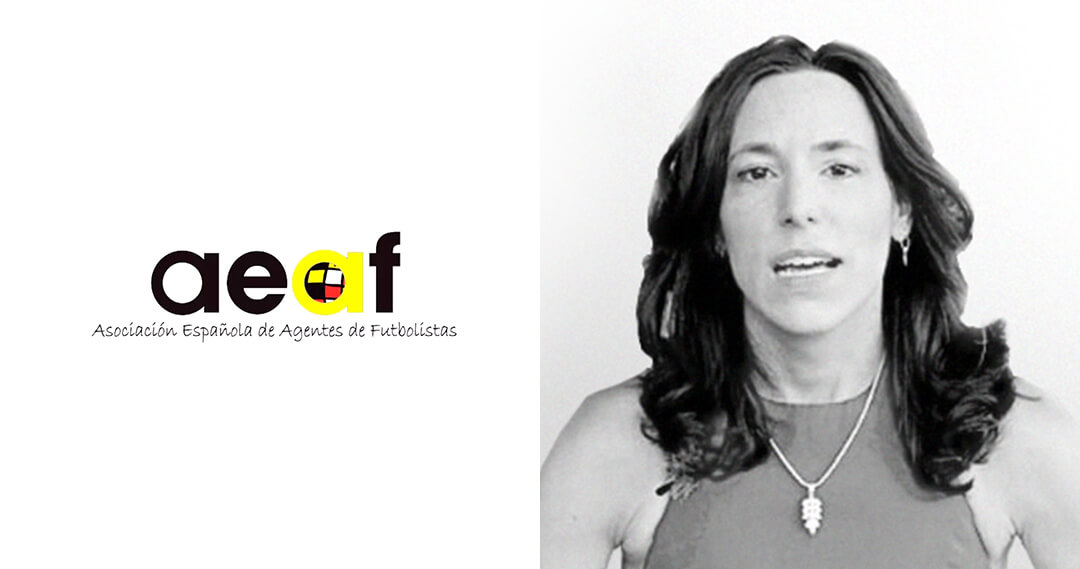
Exclusive session with Laura Hernández, Secretary General of the Spanish Association of Football Agents (AEAF) and expert in sports law.
📌 The sports agent: regulation and ethics in sports representation
From the legal uncertainty surrounding representation contracts to the complexities of FIFA regulations, Laura Hernández provides a clear and in-depth analysis of the role of the sports agent, highlighting the legal gaps in Spanish legislation, the restrictions on representing minors, and the practical implications of recent international reforms. A must-read reflection on the present and future of one of the most influential figures in the professional sports industry.
🎓 Organized by Sports Law Hub
🤝 In collaboration with ISLA – International Sports Lawyers Association
From a regulatory standpoint, a sports agent is typically seen as an intermediary between a player and a club, negotiating employment contracts or transfer agreements. However, as Hernández points out, this definition significantly underrepresents the real scope of their duties. In practice, the agent also serves as advisor, representative, and often a trusted confidant. “What begins as advisory services soon evolves into representation and even emotional support, becoming part of the athlete’s inner circle,” she notes.
One of the key challenges facing sports agents in Spain is the absence of a clear and specific legal framework at the national level. There is no standardized contractual model that precisely defines the relationship between agent, athlete, and club. Such agreements may fall under mandates, brokerage contracts, service leases, or general representation—none of which fully captures the complexity of the agent’s role.
“We are dealing with a legal vacuum that creates uncertainty for both agents and athletes,” warns Hernández. This issue is further complicated by the continued application of Royal Decree 1006/1985, which prohibits private employment placement agencies—ironically the exact function agents perform when seeking club positions for athletes.
In light of the national legal gap, sports agents often operate under the guidelines of international sports governing bodies, with FIFA taking the lead in football. Since 1991, FIFA has introduced various versions of its Agent Regulations. The most recent, adopted in 2022, introduces significant changes, such as requiring an indefinite license (subject to ongoing training), mandatory registration of representation contracts, and a strict two-year limit for such contracts with no automatic renewal allowed.
Additional rules require agents to advise athletes—in writing—of their right to independent legal counsel prior to signing a contract and prohibit representing multiple parties in a single transaction unless all parties provide written consent in advance.
The 2022 FIFA regulations also impose strict conditions on agent compensation. A sports agent may only be paid by their direct client, with a few exceptions for low-income athletes earning under €200,000 per year. Payments must be made in quarterly installments over the course of the employment contract, a structure that, according to Hernández, “creates financial strain, particularly for small and medium-sized agencies that must manage payroll and taxes on different timelines.”
The representation of underage athletes is another heavily regulated area. Agents may not approach minors until six months before they reach the legal age to sign a professional contract—15 and a half years old in Spain. Additionally, agents must secure written consent from the athlete’s legal guardian and complete a specialized training course focused on working with minors.
The current regulations place a strong emphasis on transparency. FIFA is set to publish the names of licensed agents, their client lists, contract terms, any disciplinary actions, and the fees collected in each transaction. Nevertheless, Hernández questions the practical benefit: “Beyond mere curiosity about how much an agent earned in a particular deal, the public disclosure of fees offers little meaningful utility.”
Due to legal challenges in multiple jurisdictions, parts of the regulation have been temporarily suspended. However, as Hernández concludes, the underlying goal is unmistakable: to professionalize the role of the sports agent, provide greater legal certainty, and protect all parties involved—athletes, clubs, and agents—in an increasingly globalized and complex sports environment.